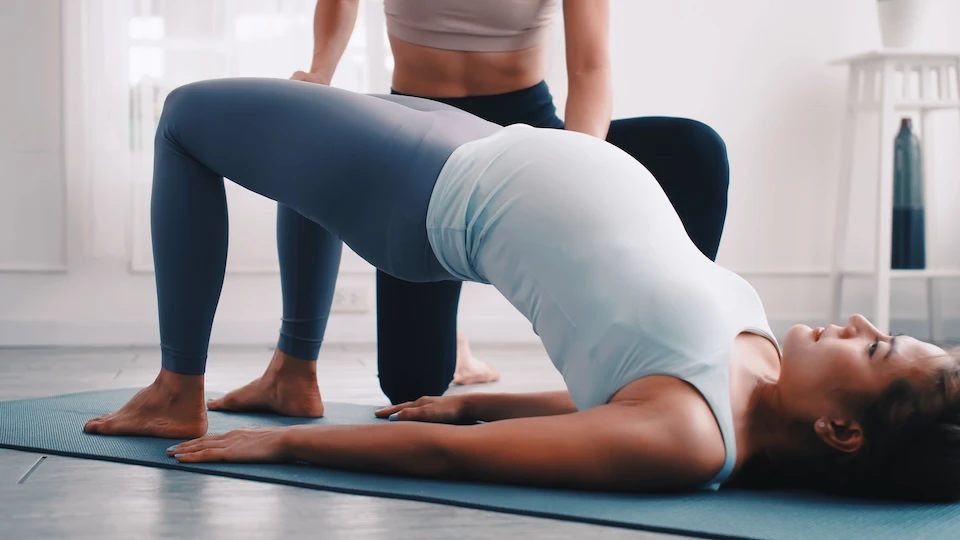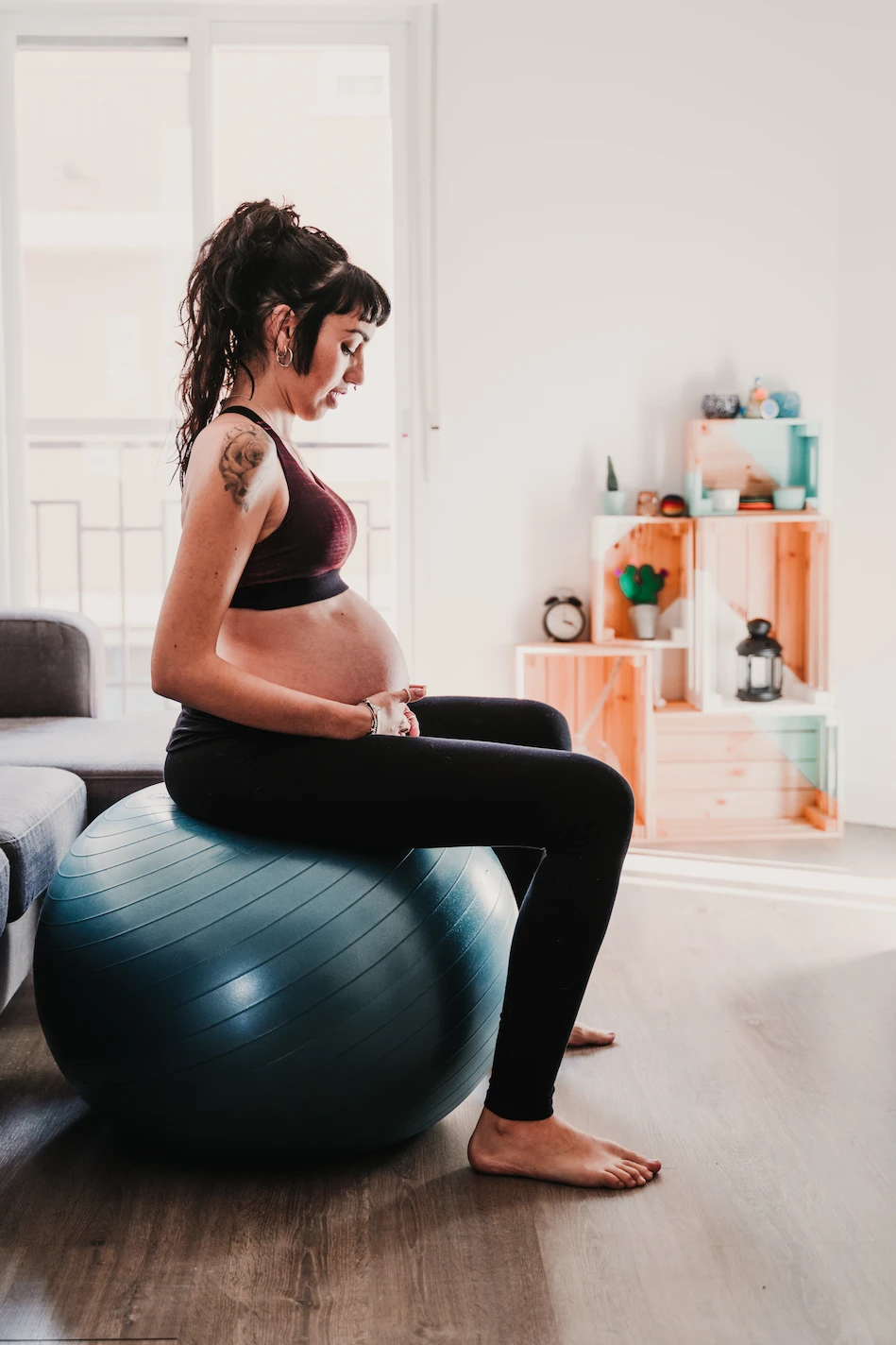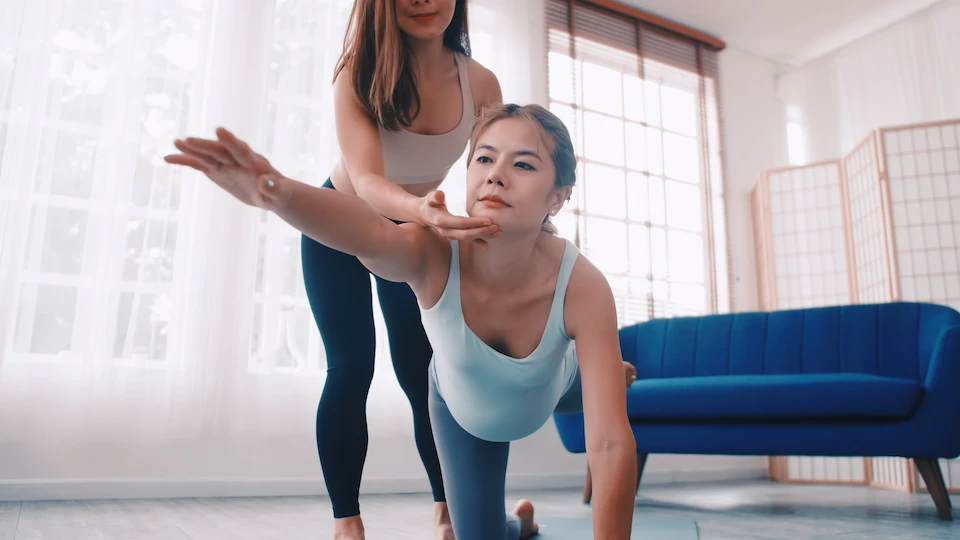Prenatal Pilates: the perfect balance between physical activity and well-being during pregnancy
- Stephanie Oswald

- Oct 26, 2023
- 3 min read
Updated: Nov 16, 2023
Prenatal Pilates meets a common need among pregnant women. When you're expecting a baby, it's natural to want to continue a physical activity that promotes your well-being, keeps you active and improves the quality of your sleep, among other things. Pregnant women are often directed towards relaxation-oriented activities. However, Pilates offers a different, active approach to maintaining your fitness in a gentle way.

Prenatal Pilates: the sports pillar for an active pregnancy
Physical activity has always played a central role in my life, with a passion for sports such as running, spinning, swimming, climbing and skiing. My lifestyle rhymes with constant movement, and even during my first pregnancy I maintained this dynamic.
However, at that point, I quickly felt a real need for physical activity adapted to my situation as a pregnant woman. Conventional recommendations focused on breathing exercises, yoga and meditation, but this didn't satisfy my need for energy and movement. Even swimming, while beneficial, didn't fill the void. There seemed to be few options for pregnant women in search of more dynamic physical activity. Today, I'd like to share prenatal pilates as a way of giving women in search of physical activity the opportunity to practice a dynamic sport during their pregnancy.
What are the benefits of prenatal Pilates?
During pregnancy, keeping fit has many beneficial effects on overall well-being, such as reducing pregnancy-related pain and managing stress. Prenatal Pilates gently adapts to the bodily transformations, fitness levels and specific needs of each trimester of pregnancy, ensuring that exercises are relevant and safe at every stage, and thus : Keeping fit and controlling weight: Prenatal Pilates allows you to maintain your physical condition while controlling weight gain during pregnancy. Relieve aches and pains: Prenatal Pilates specifically targets areas prone to pain during pregnancy, such as the lower back, helping to relieve it. Improve flexibility: Prenatal Pilates exercises help to improve your flexibility, which is beneficial for overall comfort.
Strengthen posture: Prenatal Pilates strengthens the back, abdomen and core, improving posture, reducing muscle tension and alleviating back pain common during pregnancy.
Strengthen perineal muscles: Strengthening pelvic floor muscles is essential for well-being during pregnancy and can aid post-partum recovery. What's more, this form of exercise has a positive impact on your mental well-being, promoting the release of beneficial hormones and offering an opportunity to relax.
When is Prenatal Pilates right for you?
You can start Prenatal Pilates as early as the second trimester of your pregnancy, but we ask that you consult your doctor before starting any exercise program during pregnancy to make sure it's right for your specific situation.
Prenatal Pilates can be adapted to each trimester of pregnancy. Exercises will be modified to take into account body changes, physical abilities and specific needs at each period.
In addition, as early as six weeks after giving birth, post-natal Pilates can be considered to aid recovery and re-education of the body, obviously with the agreement of your doctor.

In conclusion, prenatal Pilates offers a gentle, preventive approach to strengthening the perineum of pregnant women, while supporting their physical and mental well-being throughout pregnancy.
My Time2Pilates studio was also born of my desire to share my personal experience, telling myself that what worked for me could also work for you. You can try this approach by booking a session in our studio, offering a personalized experience from the second trimester of pregnancy, as well as after childbirth.
It's important to note that it's essential to consult your doctor, gynecologist or other health professionals who follow you during pregnancy before starting or continuing any physical activity.
Looking for a Prenatal Pilates class in Luxembourg? Try the Pilates classes for expectant and new mothers offered by Time2Pilates.





